The year 2024 was marked by significant milestones for Rewilding Apennines. We realized some of our most ambitious dreams, opening new paths and experimenting with innovative initiatives that filled us with enthusiasm, pride, and, most importantly, a precious energy. It is this energy that will drive us to make new dreams come true and achieve the goals that await us in the coming year.
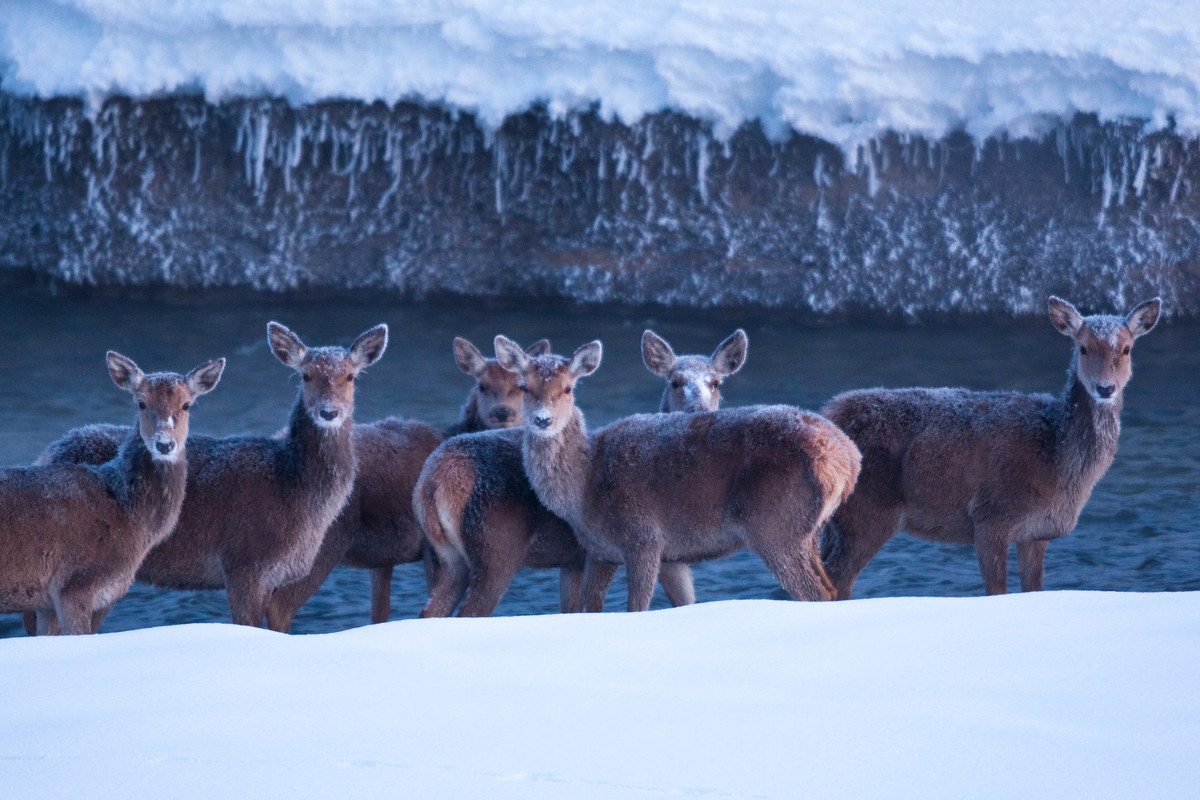
1. Fighting wildlife poisoning
The poisoning of wildlife through the use of poisoned baits is a criminal practice that Rewilding Apennines has often had to confront. In 2023 alone, we documented seven poisoning incidents that led to the deaths of over 30 wild animals, including some griffons monitored via GPS transmitters. In 2024, we identified three suspected poisoning cases through the same monitoring method.
This sad reality raises a fundamental ethical question: is it right that wild animals should pay such a high price for our inability to prevent these crimes? Our answer is clear: no!
For this reason, in 2024 we decided to focus entirely on prevention by introducing one of the most effective tools to combat poisoning: our first anti-poison dog unit, consisting of Wild, a female Belgian Malinois dog, and her handler Julien Leboucher, a member of the Rewilding Apennines team. Wild and Julien are training for a crucial task: patrolling areas where poisoning incidents have been more frequent over time, aiming to identify poisoned baits or carcasses before they kill more wildlife.
However, we are aware that practical prevention alone is not enough. A profound awareness of the poisoning phenomenon, widespread and devastating in our country, is necessary, one that has affected over 15,000 domestic and wild animals from 2009 to 2023. Without this awareness, every effort to combat poisoning remains incomplete. Therefore, we decided to continue raising public awareness through our communication campaign #LetsNotPoisonOurselves. We revisited the history of poison use in Italy, analyzed the reasons why investigations and convictions are difficult, and asked our field operators to share the frustration and despair felt when encountering a poisoned animal.
Additionally, we sought innovative and more engaging tools to discuss this issue, leading to the creation of the short film “Giro di Vite” (“Crackdown”), a work of denunciation that tells the story of a young woman’s courage in fighting crime, silence, and indifference. A strong message that we hope will inspire many to join our fight against poison and for a culture of respect for biodiversity and legality.
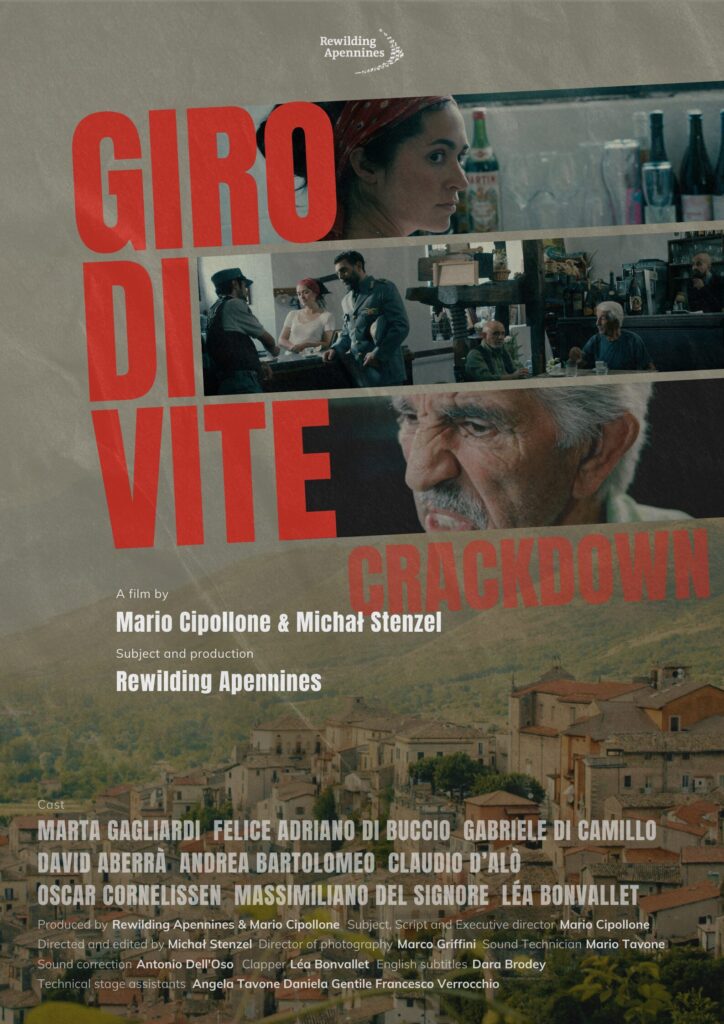
2. Breaking barriers
One of the milestones that made this year so significant was the achievement of one of our most ambitious rewilding dreams: the removal of five concrete barriers on the Giovenco River. This unprecedented action in Central Italy restored ecological continuity to 11 kilometers of the river’s course, reestablishing its natural connection for the first time in decades.
This extraordinary yet complex undertaking was made possible only through our determination and perseverance, collaboration with technical experts, and the valuable financial support from the Open Rivers Programme, which funded the initiative with € 157,000, alongside Rewilding Europe.
The removal of these barriers was not just a technical rewilding operation; it was a powerful message demonstrating that breaking barriers is possible! With this initiative, Rewilding Apennines actively joins an expanding global movement involving scientists, technicians, professionals, and NGOs committed to removing artificial barriers from rivers for the health of ecosystems and the collective well-being.
Today, the Giovenco flows more freely, becoming a symbol of hope and regeneration, an invitation to believe in the power of change and the ability to rebuild vital connections between humans and nature.
3. The crayfish returns home
Free-flowing rivers represent much more than a poetic image. They signify the restoration of natural processes of erosion and sedimentation, riparian vegetation reclaiming its living space, and, above all, life repopulating the waters. Without obstacles in their path, many animal species are finally free to move and migrate, becoming central players in a balanced ecosystem.
However, for some species, this process is neither simple nor quick. A striking example is the native white-clawed crayfish (Austropotamobius italicus meridionalis), once abundant in our waters, now relegated to a few isolated populations or, worse, completely disappeared.
At Rewilding Apennines, we have set an ambitious long-term goal: to help the white-clwed crayfish recolonize the Apennine rivers. This year, we added a crucial piece to this journey: the opening of a new breeding center in Pettorano sul Gizio, complementing the one already active for years in Borrello.
With two fully operational centers, young crayfish are growing safely to be released into the rivers, where they can once again become part of an ecosystem that welcomes and protects them, potentially attracting the presence of other wild fauna they are prey to (e.g., river otters).
It marks the return of a species and, above all, the rebirth of an entire river community.
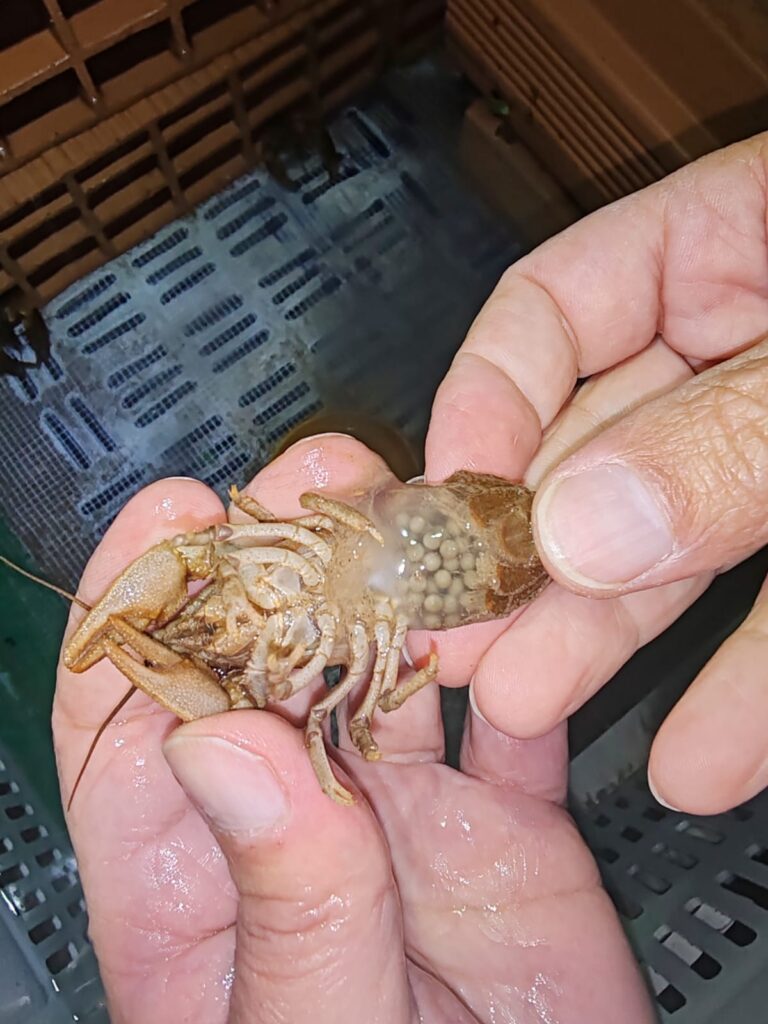
4. Ten years of coexistence in Bear-Smart Communities
Looking back, it’s incredible how far we’ve come since 2015, when, at the initiative of Salviamo l’Orso, we first supported the implementation of the North American Bear-Smart Community model in Italy, courageously adapting it to the Apennine context to promote coexistence between humans and bears.
That year marked the birth of something extraordinary: Italy and Europe’s first Bear-Smart Community in Pettorano sul Gizio, in collaboration with the Municipality and the Monte Genzana Alto Gizio Regional Nature Reserve. It was a pioneering step, but we did not yet realize how much it would inspire the future.
Since then, in synergy with Salviamo l’Orso, we have replicated the initiative in the ecological corridors of Alto Molise and Valle Roveto, following the spontaneous expansion routes of the Marsican brown bear, leading to an even more ambitious initiative: the LIFE Bear-Smart Corridors, which is creating 16 Bear-Smart Communities across Abruzzo, Lazio, and Molise, in collaboration with numerous protected areas, municipalities, and local organizations.
These communities not only prevent conflicts with bears but also work towards something deeper: creating shared spaces for dialogue and participation, where humans can learn, welcome, and appreciate the long-term benefits that wildlife brings.
It’s a story of coexistence and respect that, ten years on, looks to the future with hope and determination.
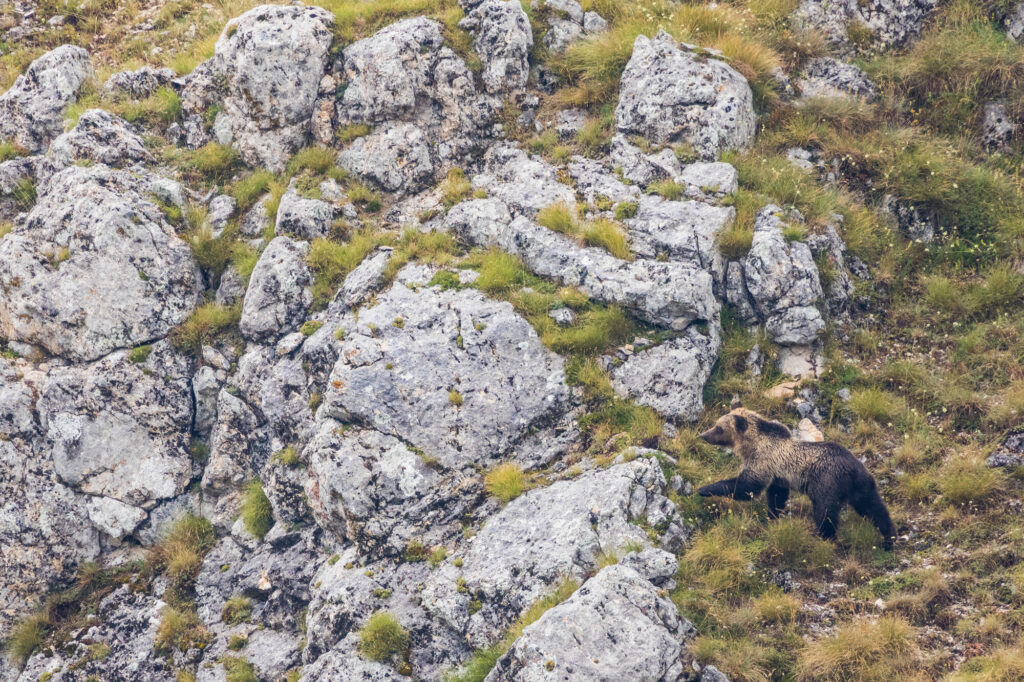
5. Inspiring through art
Humans owe an immeasurable debt to nature, which has always been an inexhaustible source of inspiration. From literature and poetry to visual and performing arts, across cultures and eras, humans have drawn from nature’s beauty and complexity to create extraordinary works.
At Rewilding Apennines, we believe it is time to repay some of this cultural debt by finally putting art at the service of nature, and not just the other way around. This year, more than ever, we dedicated ourselves to exploring this profound relationship between humans and nature, seeking to evoke emotions and reach new sensitivities.
We launched the international literary competition “Wild Tales,” dedicating the first edition to supporting our battle against wildlife poisoning. Through “Wild Readings,” we celebrated nature through the words of great literary authors at reading invitation events. We invested in the power of theater by actively participating in the production of “Condominio Selvaggio” (“Wild Condominium”) a performance created and staged by Aedo Studio that not only narrates coexistence between humans and bears but also invites us to explore the deep bond between us and wild animals.
We didn’t stop there: live painting, musical performances, and storytelling became forms of celebration for our rivers, and cinema – with the short film “Giro di Vite” (“Crackdown”) – turned into a tool for reflection on issues that go beyond environmental protection, such as civic engagement and the value of legality. Finally, the establishment of the Bear’s Den Interpretation Center in the Castello Cantelmo of Pettorano sul Gizio, an immersive experience in an inspiring space, allowed everyone to connect with the secret life of one of our landscape’s most mysterious and fascinating animals, the Marsican brown bear.
Each initiative, every form of art, has been a step toward a singular goal: to convey a strong and clear message that nature and art are indissolubly linked, and that through beauty we can raise awareness, evoke emotions, and, above all, inspire profound change in our relationship with the world around us.
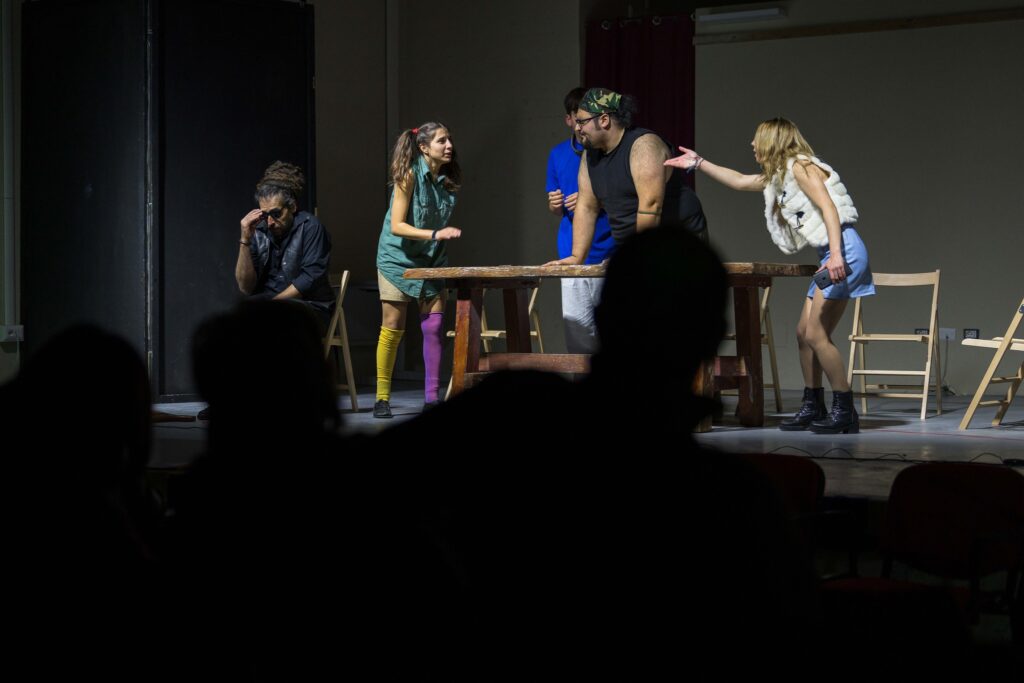
For all these achievements in 2024, we feel grateful to the entire Rewilding Apennines team, our partners, sponsors, and Rewilding Europe for their constant support.
Wishing everyone a 2025 even richer in nature!